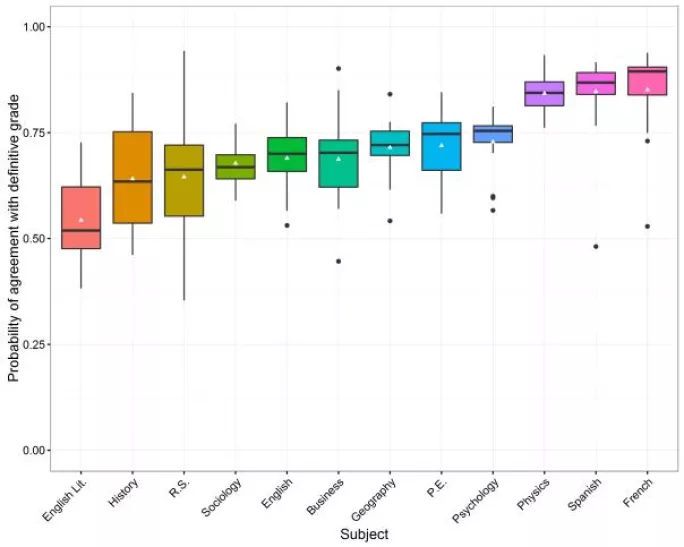Only half of examiners for English Literature agree on the “expected” grade for an exam, a major Ofqual study has found.
New research from the exams watchdog has revealed stark differences between subjects in the likelihood of markers agreeing with the ‘correct’ grade agreed by senior examiners.
In English Literature, the average probability of a pupil getting this correct grade was just over 50 per cent, compared to approximately 95 per cent for French, new data has found.
A report, released today, has revealed that there is more consistency in marking across more objective subjects - such as physics where the average probability is around 85 per cent.
Ofqual used sample exam questions - which had a definitive mark previously agreed by a senior examiner - to see how different markers rated the same answers and whether they chose the correct mark.
The report states: “It is inevitable that there will be different levels of marking accuracy in different subject areas. It is observed that the quality of marking for physics components is higher than that for the more ‘subjective’ English language or history components.”
For individual questions, examiners in physics were also 95 per cent more likely to agree with the definitive mark.
The report added: “Physics questions are generally low-mark tariff (≤ 6 marks) questions and typically there is an objectively correct answer to each question.
“For more subjective questions, there may be legitimate differences in applying the mark scheme between different examiners resulting in less agreement between examiners.”
Meanwhile, typically only half of examiners in English agreed with the definitive mark.
Dr Stephen Rhead said: “There’s a slightly different picture for English as the questions are more subjective and the mark scheme level based.
He added: “A large part of marking consistency is determined by the assessment itself. Ultimately this is a function of question paper and mark scheme design.”
Want to keep up with the latest education news and opinion? Follow TES on Twitter and like TES on Facebook





